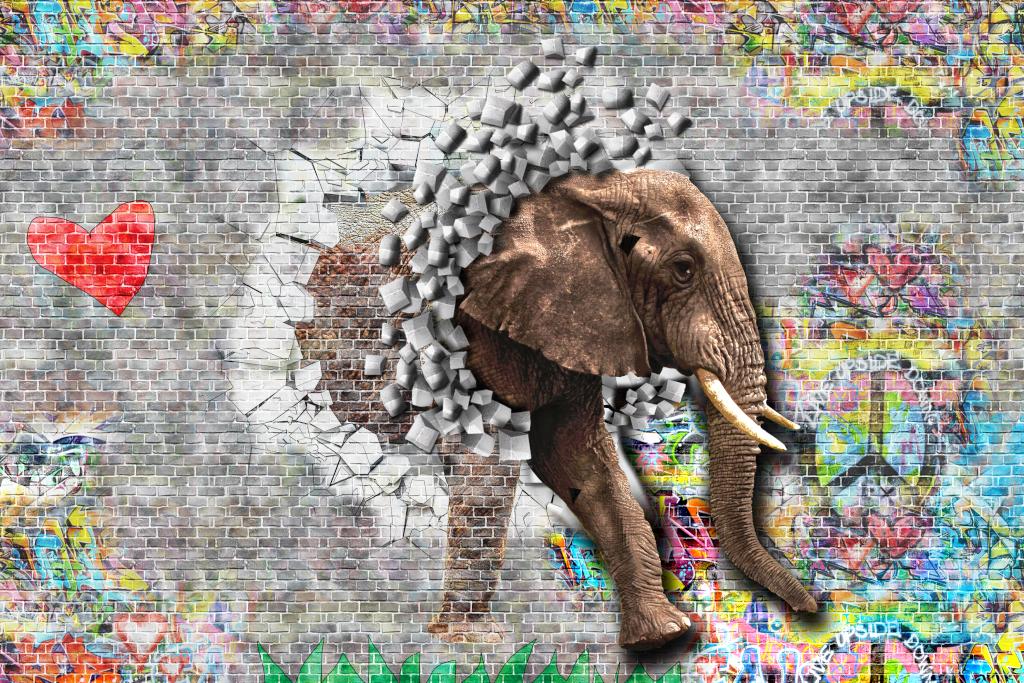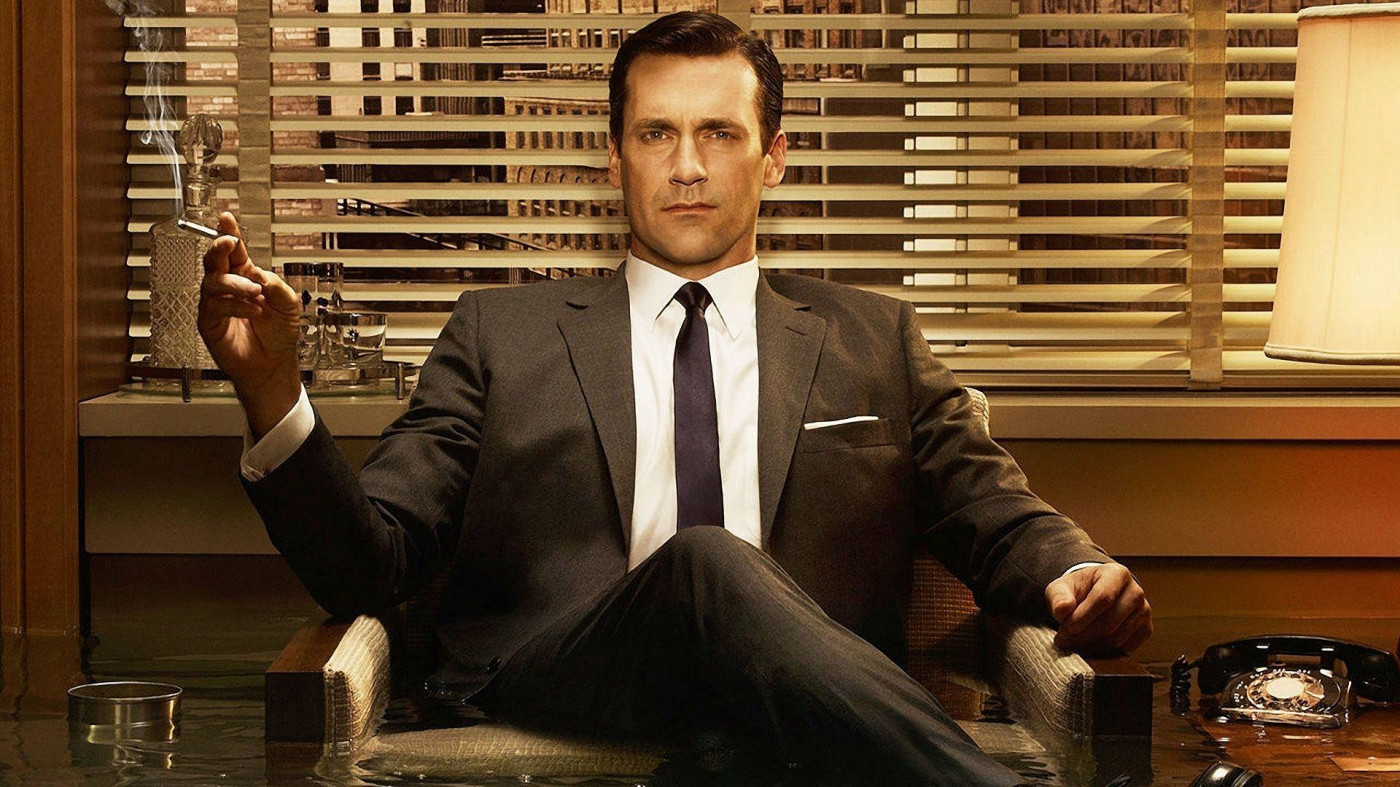The system is so big, so total, that it is very hard to point to, very hard to talk about. If you do try to talk about it you can be sure that people will look at you blankly, wondering what on earth you are on about. The system is everywhere. The system is everything you are familiar with, everything you know, everything you see. It is everything you think about.
The system operates you – when you want something, you only want it because the system wants you to want it. If you think something you are only thinking what the system wants you to think. When you have an idea, it is the system’s idea not yours. When you conceive of a goal it is the system’s goal – the system has put that goal in your head.
Although the system controls everything, it doesn’t advertise the fact. The system is very discrete indeed and it is possible – more than possible – for me to go through my life without ever realizing that I am not really in the driving seat. Or if I am in the driving seat, then as Adyashanti says, I am driving without realizing that the controls are dummies, without realizing that they don’t actually do anything. The system is in control and it controls our perceptions – it controls our perceptions so that we believe that we are autonomous beings and that we are making all the decisions. It grants us this luxury – just as democracies allow voters to believe that they the ones with the all-important grip on the steering wheel, rather than those with vested interests and the money and the influence to protect them. The less I am aware of the system the better it works, and when I am completely unaware of its existence it works very well indeed. It works superlatively well.
The system is very accommodating – it facilitates any role I want to take up with equal perfection. If I want to be a good guy I can be a good guy and if I want to be a bad guy I can be that too. If I want to be powerful I can be powerful and if I want to be a victim then a victim I will be. If I want to be a ‘winner’ then that’s fine, or if I want to be a ‘loser’ then that’s fine too. I can be anything I want: if I want to be a perfectly responsible member of society then I can be and if I want to be a rebel, a true individualist, then the system will let me be that too…
The system is mainstream society, but it is also all of the alternatives. So if I want to make a statement that I am not part of conventional, mainstream society then I can – just for example – adopt the identity of an ‘alternative type’ or hippy. But hippies are the system too. It’s all the system. Suppose I am a teenager or young adult and I have the very healthy desire to disengage from the values of the society I have been indoctrinated into. If this is the case (as it quite possibly is) then the system will provide me with everything I need to create and furnish me with my ‘system-rejecting’ identity. The system is on hand – as ever – to supply me with the ‘complete package’: the clothes I wear, the food I eat, the music I listen to, the pundits I listen to, the opinions I express, the language I use, and so on. The system is like Sky or UPC – depending on your degree of sophistication, the system has the package to suit you.
But this aspect of the system is only ‘an external’ and if we focus on it too much then we will be distracted from what is really going on. Our attention will be harmlessly diverted onto mere externalities, and in this case the system will provide us with possibly the most sophisticated package of all – the identity of someone who is wise to the system, someone who is ‘onto its game’ and is not taken in by it like all the other brainwashed fools. This is a kind of ‘elite cognoscenti’ package – a package for those who want to be less naïve and less easily hoodwinked than the average guy. But what we see going on in the outside world in the way of covert manipulation, spin-doctoring, propagandizing and control is only a reflection of what is going on right inside our heads – which is of course where the system has its real power-base.
We can, if we are politically astute enough, become aware of the characteristic manoeuvrings and manipulations of the system in the external world and this raises the possibility of perhaps mobilizing against its nefarious operations in some way, raising public consciousness about what is going on, and so on. But the core of the system, its ‘citadel’, remains invisible to us and – as a result of its invisibility – it also remains utterly impregnable. The more we become pre-occupied with the external tyrant the more enslaved we are by the internal one.
The system hides away inside us; it is so close at hand that we never think of looking for it there. We keep the system as close as close could be, we are as close and as intimate with it as with a lover. And yet despite this degree of intimacy the system is no lover; it does not love us at all. It does not love anything – it only loves itself, which is a parody of love, an ‘inverted form of love’. This could be one definition of the self – that it adores itself, delights in itself, worships itself…
The system is exclusively pre-occupied with itself and involved in itself. It approves of itself, praises itself, promotes itself. It invariably gives itself all the good jobs whilst pretending the whole time that everything is fair and above board. It unfailingly bestows on itself all the perks, like the Wicked Stepmother looking after her own two lazy, ugly, ill-natured daughters and making the under-valued Cinderella do all the donkey work with never any trace of a reward. All she gets is abuse and scorn. The system is at all times very assiduous and cunning in looking after itself – it lays secret plans, it stealthily extends itself and consolidates itself. It waits patiently for its chance. The system has great ambition for itself – it will not rest until it has secured for itself all the benefits, until it has by whatever means are available to it taken over all the territory. It is the ultimate colonial power.
The system is as we have said no ‘external enemy’. What it is in its essence is a total way of seeing the world. It is a language, the language of thought which we ceaselessly use to describe reality to ourselves. The key aspect of this language is however that it is ‘closed’; closed means that the system of description and interpretation which is the language is exclusive in nature, i.e. if something cannot be described in terms of that language then it simply doesn’t exist. This of course means that what I can know, what I can think, what I can express or communicate is wholly determined by this closed modality, this finite language. Everything I do and everything I think is based upon this ‘taken-for-granted’ way of understanding and perceiving the world and this constitutes the most appallingly insidious limitation anyone could ever imagine. The way I understand myself, the way I construct my own identity, the concept I have of my life, and so on, is supplied for me by some kind of external agency or authority – an agency moreover that is in itself wholly and completely ‘self-interested’. What more terrible form of limitation or imprisonment than this could there be?
Anything I could ever achieve has meaning only within the closed terms of the meaning-system that I have unreflectively taken for granted and this ‘system of meaning’ is – as we have said – completely and implacably self-serving. It has no ‘duty’ other than to preserve its own integrity; its allegiance is to itself, its ‘interest’ in my well-being or growth non-existent. After all, if I was to actually grow – in any genuine sense of the word – then this process would necessarily involve moving beyond the boundaries that had previously been set out for me. This process of moving beyond my own boundaries would involve me ‘out-growing’ old ways of seeing and understanding the world; but if was to do this – if I were to shed my old way of understanding reality just as a lizard sheds its skin – then the system of meaning which previously would have held my total allegiance would now be utterly defunct, utterly redundant.
With everything we have so far said about the system, how likely is it that it would simply sacrifice itself like this for the sake of my growth? This would be about at likely as a multi-billion dollar corporation suddenly deciding to dissolve itself and give away all its money to the victims of famine in Somalia, or some other such humanitarian cause. Corporations regularly donate money to worthy causes but the reason they do this is to benefit themselves in terms of their image, which is of course a vital consideration to them; they do not do it out of unselfish motives because a corporation is fundamentally, intrinsically incapable of acting out of anything other than purely selfish motivation. That is just the way they are built – they have no possibility whatsoever of being otherwise. In the same way the system that we are talking about here simply has no capacity to ever do anything that is not in its own interest – its logic is closed, its logic begins and ends with itself.
As Jung observed, ‘the good is the enemy of the better’. When we happen upon a good way of understanding the world, a ‘useful language’ in which to describe or model it, then we are of course happy with the pay-off that we obtain as a result of this model. It is perfectly natural that we then put all our energy and time into optimizing the benefits that flow from this modality of understanding; everything becomes about the consolidation of the territory that we have gained. But when a better way of understanding the world comes along – as it always will, since there is always going to be a ‘better way’ out there – are we going to be happy about this new and better way? Are we going to welcome it with open arms? Are we going to be fine about dropping the old way? History of course shows that we are not happy about this sort of thing; to say that we are not happy is a massive understatement – the good is the enemy of the better, not the friend. It is in fact a very bitter enemy indeed.
The system does not love change. It is the ‘conservative principle’ par excellence, the archetypal conservative principle; the system only gets to be the system by repressing change at all costs. It doesn’t matter what you call the system, what names it goes by or what external forms it takes. Joseph Campbell calls it The Tyrant Holdfast. In his Illuminati! Trilogy Robert Anton Wilson refers to Old Greyface. Philip K Dick speaks of the Black Iron Prison, the ‘Empire that never ended’. The alchemists knew and personified this principle in the motif of the Old King, the once-beneficial ruler who has become corrupt and wicked, who is now addicted to cruelty and the abuse of power, the wielding of ‘power for the sake of power’. The Old King is tyrant who is committed to nothing apart from this continuance of his corrupt reign.
The system is the sworn enemy of our growth, of our natural unfolding. Instead of genuine change it distracts us with a non-stop barrage of ‘false-directions’ – distractions, deflections, apparent developments that actually go nowhere. This is its game – this is its business and it conducts it business with superlative skill. It sells us on the idea of linear change (also known as progress) which is where we keep on building upon and perfecting a game that is based upon a fixed set of ‘unconscious’ assumptions. The unchanging set of unconscious assumptions upon which base we are encouraged to keep building is of course the system itself; the system is that set of unconscious assumptions – it is the closed language which we take for granted in all things. The only thing the system cares about is promoting itself and this is the only thing that it ever does.
The system is my mind. It is my mind and it is your mind. It is everyone’s mind – it is the ‘common vehicle’ spoken of by G.I. Gurdjieff, the collective vehicle in which we all travel. Where it goes, I go – there is no choice whatsoever in the matter. Gurdjieff also says to his students that one day – if they keep working at it – they will have their own vehicle. They will no longer have to travel by public transport, they will no longer be owned by the system, operated by the system. In this case, instead of always building on the system, we ‘un-build’ the system – we demolish the system. For good. Instead of ‘progress’ we then have ‘radical demolition’, or – as Krishnamurti calls it – ‘radical revolution’. This is not a revolution that has been stage-managed by the system, but the real thing. As the Buddha has said –
I wandered through the rounds of countless births, seeking but not finding the builder of this house. Sorrowful indeed is birth again and again. Oh, housebuilder! You have now been seen. You shall build this house no longer. All your rafters have been broken, your ridgepole shattered. My mind has attained to unconditioned freedom. Achieved is the end of craving.





